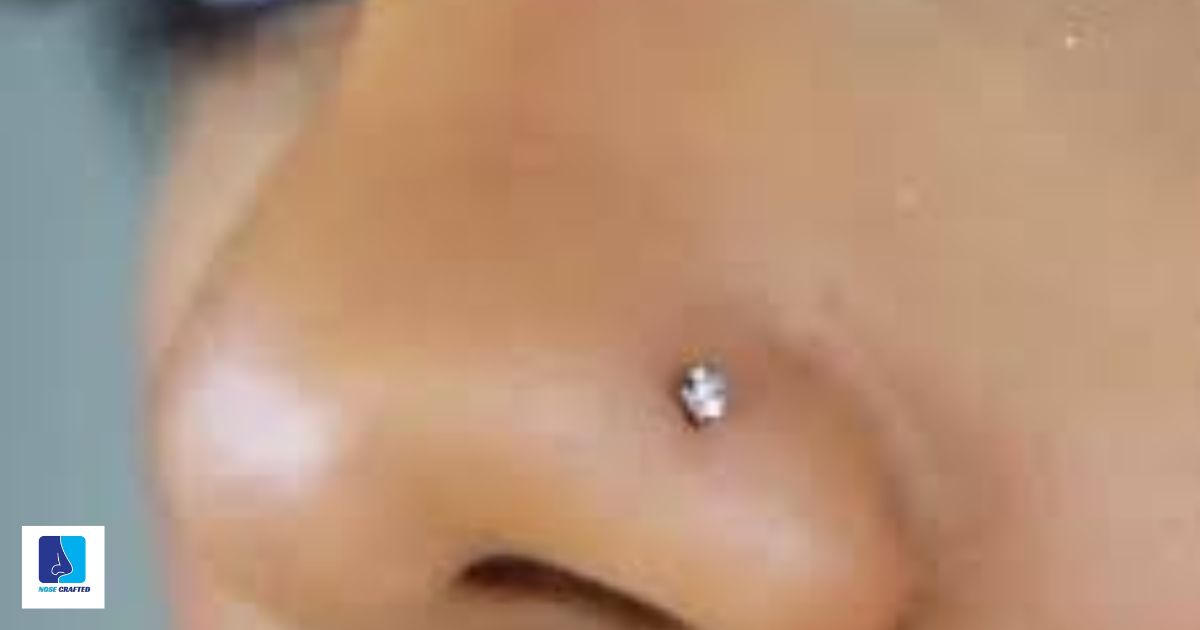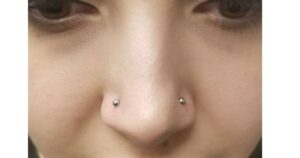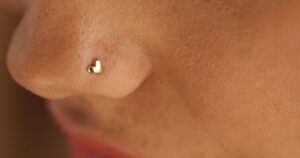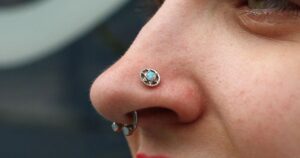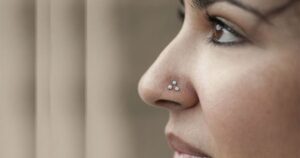A nose piercing involves puncturing the nose to wear jewelry. Whether it’s deemed a sin varies among different religious and cultural beliefs. Interpretations range from acceptance to prohibition based on religious teachings and personal convictions.
Curious about whether a nose piercing crosses a religious line. Dive into the debate over whether Is A Nose Piercing A Sin as we explore diverse perspectives and beliefs. Discover where you stand on this intriguing question.
Nose Piercing A Sin explores the moral implications of nose piercings within various religious and cultural contexts. It delves into the debate on whether this form of body modification contradicts religious teachings or personal beliefs.
Is Body Piercing Haram In Islam
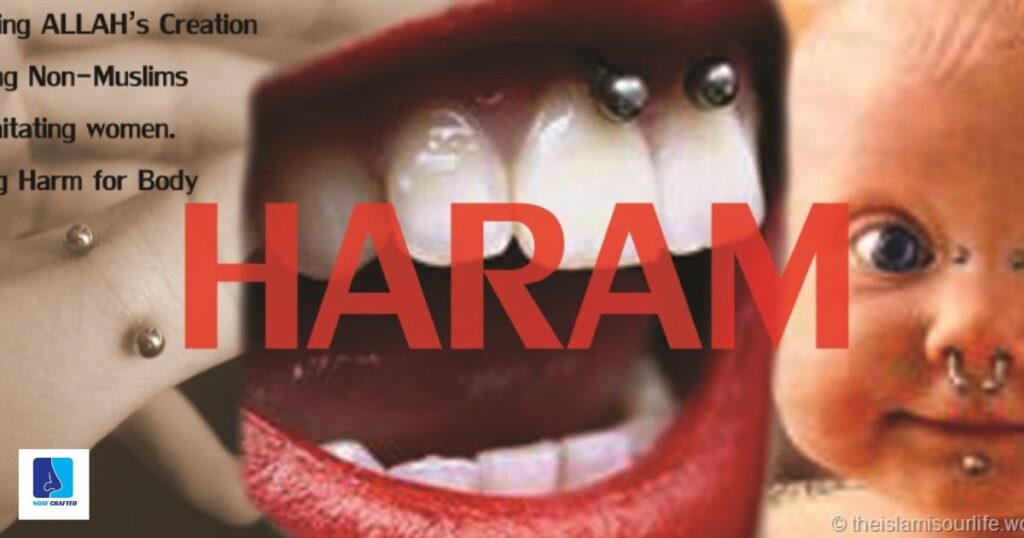
The question of whether body piercing is haram in Islam is debated among scholars. While some argue it falls under permissible adornment others deem it haram due to altering the body. Understanding Islamic teachings on Is A Nose Piercing A Sin can provide clarity for individuals considering this form of self expression within their faith. In Islam the legality of body piercing varies among scholars.
In Islam the permissibility of body piercing is a topic of discussion among scholars. Some consider it permissible if it doesn’t cause harm or alter the body excessively. However others view it as haram particularly if it involves unnecessary alteration or goes against modesty. Understanding the nuances of this debate is important for Muslims navigating religious guidelines regarding personal adornment.
Quranic Verses And Hadiths
Quranic verses and Hadiths are foundational texts in Islam providing guidance and teachings for Muslims. On Both Sides, Quranic Verses and Hadiths offer no direct prohibition against nose piercing in Islam. Some scholars argue that as long as the piercing doesn’t cause harm or lead to immodesty, it may be acceptable within Islamic teachings.
Piercings Haram For Girls
In some interpretations of Islam nose piercings may be considered haram for girls due to concerns about altering the body unnecessarily. However views on this issue vary among scholars and individuals within the Muslim community. Some consider nose piercings permissible as long as they are modest and don’t lead to harm.
Nose Piercings Painful
Nose piercings can be painful during the piercing process as the needle punctures the skin and cartilage. However the discomfort is typically brief and many people find the pain tolerable for the desired aesthetic outcome. Nose piercings can cause discomfort or pain during the piercing process.
Religious And Cultural Significance

Religious and cultural significance surrounding nose piercings varies widely. In some cultures nose piercings hold deep spiritual or ritualistic meaning. while in others they serve primarily as a form of personal expression or adornment. Understanding this diversity enriches our appreciation of the diverse beliefs and traditions surrounding body modification. Nose piercings carry diverse religious and cultural significance worldwide.
Nose piercings carry diverse religious and cultural significance across different societies. For some it symbolizes rites of passage spirituality or cultural identity. Understanding these varied meanings enhances our appreciation for the rich tapestry of human expression and belief systems worldwide. Nose piercings enhance our appreciation of cultural diversity and individual expression.
Islam Say About Piercings
In Islam opinions on piercings vary among scholars. While some consider certain piercings permissible if they don’t cause harm or lead to immodesty others may view them as haram depending on the context and intentions behind them. Islam has varying interpretations regarding piercings.
Piercing Done Before Islam
Piercings have existed long before the advent of Islam with evidence dating back thousands of years across different cultures and civilizations. They were often associated with cultural practices, rituals or personal adornment reflecting the diverse historical contexts in which they were performed.
Religious Perspectives On Nose Piercings
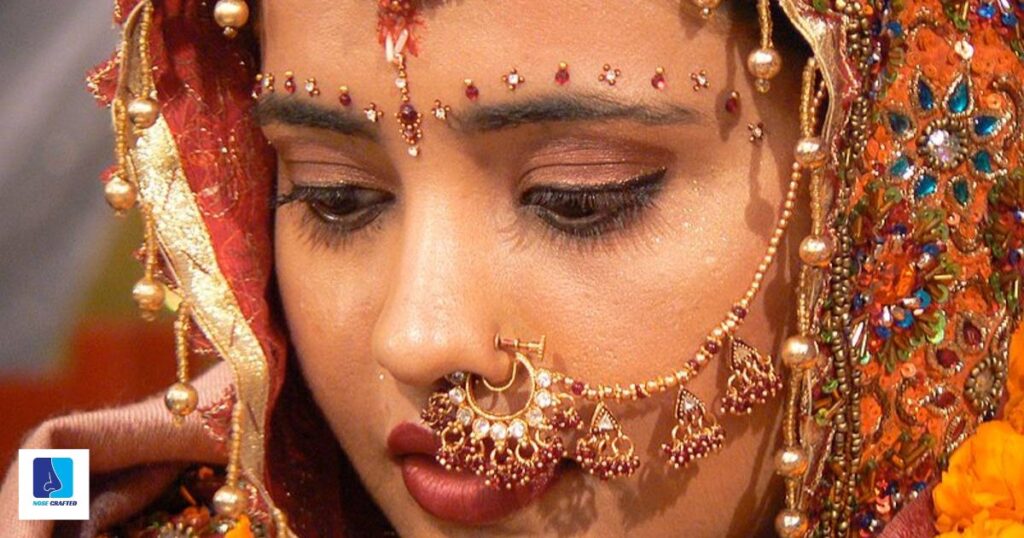
Religious perspectives on nose piercings span a spectrum of acceptance and prohibition. While some faiths embrace nose piercings as a cultural or personal adornment others may view them as contradictory to religious teachings on modesty or body modification. Understanding these diverse perspectives is crucial for individuals navigating the intersection of religious beliefs and personal expression.
Religious perspectives on nose piercings vary greatly across different faiths. Some religions like Hinduism and certain Indigenous traditions embrace nose piercings as culturally significant and spiritually meaningful practices. However in religions such as Islam and certain sects of Christianity nose piercings may be discouraged or even prohibited due to interpretations of modesty and body modification.
Bible Say About Body Piercing
The Bible does not explicitly mention body piercing. However some Christians interpret verses such as 1 Corinthians 6:19-20, which speaks of the body being a temple of the Holy Spirit as discouraging excessive modification. Others view piercings as a matter of personal choice guided by principles of modesty and respect for one’s body.
Nose Piercings In Christianity
In Christianity perspectives on nose piercings vary among different denominations and individuals. Some Christians may view nose piercings as permissible forms of personal expression .While others may have reservations based on interpretations of biblical teachings on modesty and self restraint.
Jewish Texts And Traditions
Jewish texts and traditions provide guidance on various aspects of life including personal adornment. While nose piercings aren’t explicitly mentioned in the Torah Jewish law (Halakha) offers principles of modesty and respect for the body that may influence opinions on piercings. Interpretations may vary among different Jewish communities and individuals.
Church Say About Body Piercings
The views of the Church on body piercings vary among different Christia denominations and leaders. While some may see piercings as a form of self expression and personal choice others may view them through the lens of biblical teachings on modesty and respect for the body.
FAQ,s
Are nose piercings OK in Islam?
Nose piercings in Islam are a matter of interpretation and cultural context. Some Muslims may consider them permissible if they adhere to modesty and do not cause harm. while others may view them as discouraged or even prohibited.
What does a nose piercing symbolize?
A nose piercing can symbolize various things depending on cultural and personal contexts such as beauty rebellion, cultural heritage or spiritual significance.
Do nose piercings smell?
Nose piercings typically don’t have a smell on their own but improper hygiene or infection can cause an odor. Regular cleaning and proper care help prevent this issue.
Are nose piercings painful?
Nose piercings can be painful during the piercing process but the discomfort is usually brief. Pain levels vary depending on individual tolerance and the skill of the piercer.
Are piercings permanent?
Piercings are not necessarily permanent; they can close up if the jewelry is removed for an extended period.
Conclusion
In conclusion, whether a nose piercing is considered a sin varies greatly depending on religious beliefs and cultural interpretations. While some may view it as a violation of religious teachings on modesty or body modification others perceive it as a form of personal expression or cultural tradition. Ultimately the question of Is A Nose Piercing A Sin underscores the complexity of navigating religious guidelines and individual autonomy in matters of personal adornment and faith.
The question of whether a nose piercing is a sin is subjective and varies based on individual beliefs and cultural contexts. While some may interpret religious teachings as prohibiting such practices others may see them as permissible forms of personal expression. A nose piercing constitutes a sin that is multifaceted and subjective, largely dependent on individual religious beliefs and cultural norms.
